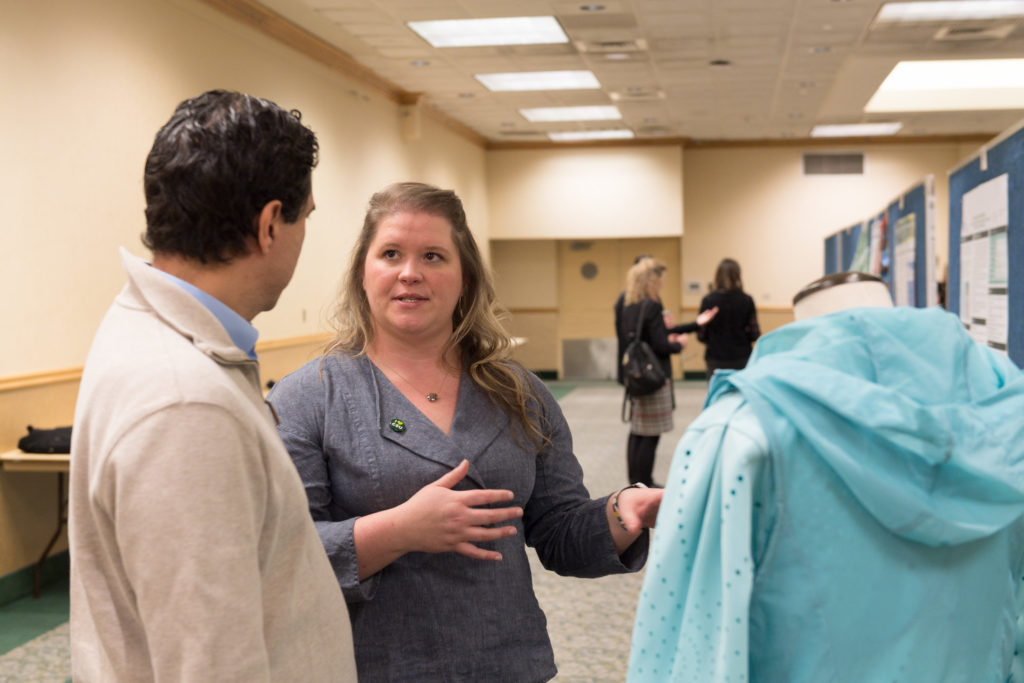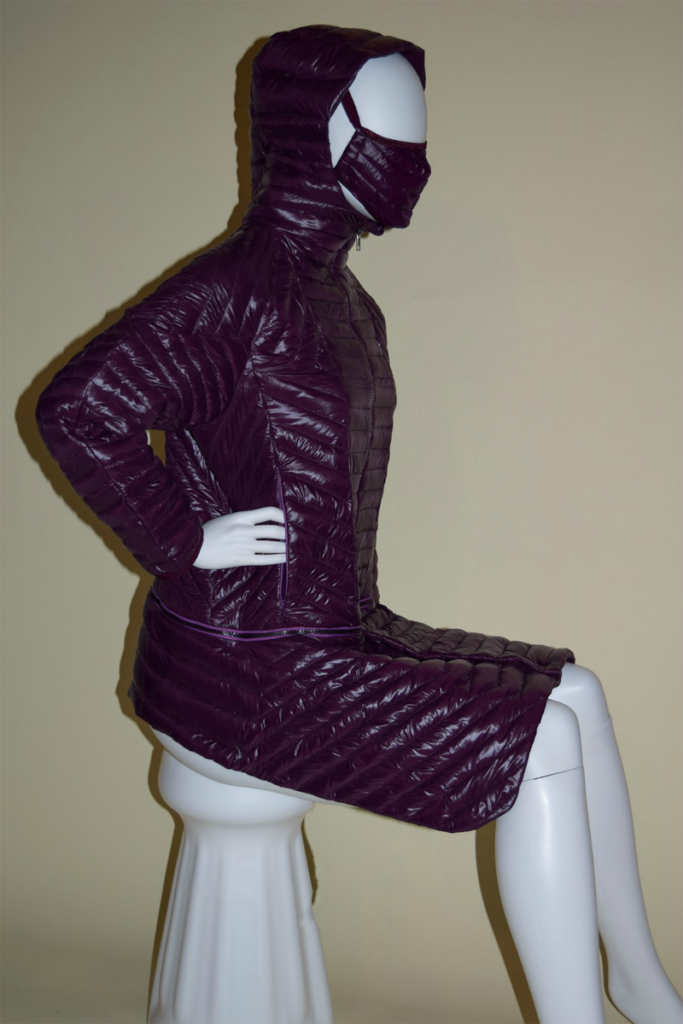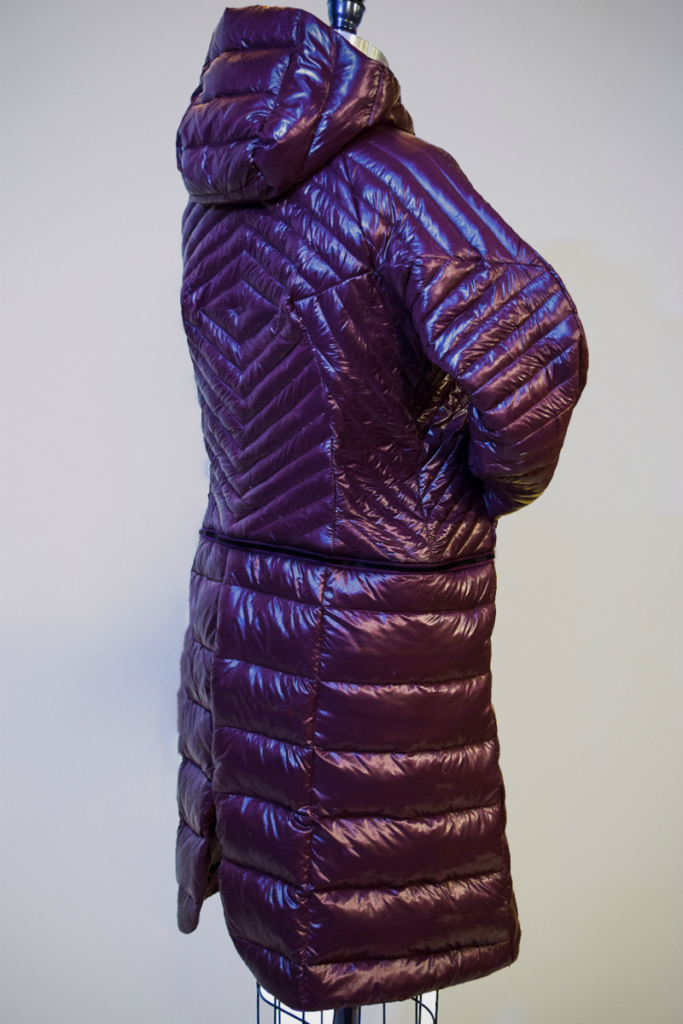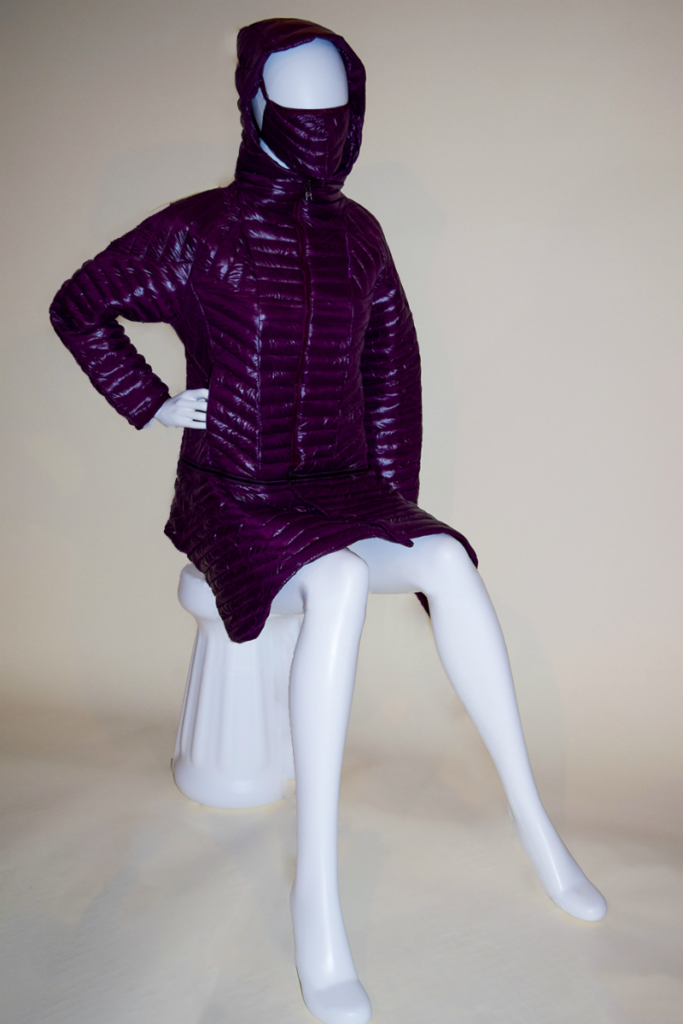
Kristen Morris (she, her, hers), assistant professor in the Department of Design and Merchandising, has won the Claire Schaeffer Award for Outstanding Marketable Design – Professional Category from the International Textile and Apparel Association. ITAA is the premier organization in the field of Design and Merchandising. The design she won the award for is titled Ice Wine: Adaptive Down Parka.
Ice Wine: Adaptive Down Parka
This adaptive parka, is a modifiable winter coat that mirrors performance features and aesthetics of non-adaptive outerwear yet ensures independence through easy dressing. Ice Wine features a zip-off lower portion that can go from fitting a person in a seated position to a knee-length parka suitable for people in a standing position. The adaptive lower is designed to not bunch at the waist, back, and sides. The easy-dress features in this parka include a magnetic close zipper and invisible zippers on the outer sleeves that make it easier for caregivers to assist in dressing.
These features ensure that access to outerwear is not a barrier to participation in cold weather activities for people with mobility limitations. The fabric was quilted by Morris using 600-fill power goose down, providing warmth without the weight. Morris developed this design using flat patternmaking and industrial sewing techniques.
“Designs, like Ice Wine, contribute to building a cohesive body of research – the designs are the applied, experimental part of my research that leads to further research innovations,” said Morris.



User-centered design approach
Design scholarship is not only a passion project of Morris’ but it is also part of her research program. Morris has always been interested in the user-centered design approach. This approach gets the end user involved in the design of products at early stages of development and involves them frequently throughout the process. User-centered design is a novel approach, not widely adopted in the fashion industry. Morris got interested in adaptive clothing while teaching and working with her former colleagues at the University of Missouri. While working there she cultivated a strong interest in clothing related barriers and working with those that are not represented by current fashion markets to discuss their clothing needs.
Inclusive design
Morris gravitated towards working with people who are overlooked in the apparel market. There are large communities of people that currently cannot find what they need in the clothing options that are available to them. Through the resources we currently have available in the market, we have the capabilities to overcome this issue.
Morris emphasizes inclusive design in her teaching because “it is important for the students to think about different groups of consumers.” Inclusive design also promotes out-of-the-box-thinking for students and problem solving that they can carry with them throughout the rest of their program and beyond.
The adaptive apparel market is already a $2 billion market with projected growth to be over $3.5 billion by 2024 and companies like Tommy Hilfiger Adaptive and Zappos are working to establish this market. With researchers like Morris and what she is encouraging her students to learn, it will be interesting to see how this market grows and makes this vibrant and innovative community part of mainstream consumers.
“It gets me jazzed to think about the future of adaptive apparel,” said Morris.
The Department of Design and Merchandising is in the College of Health and Human Sciences.